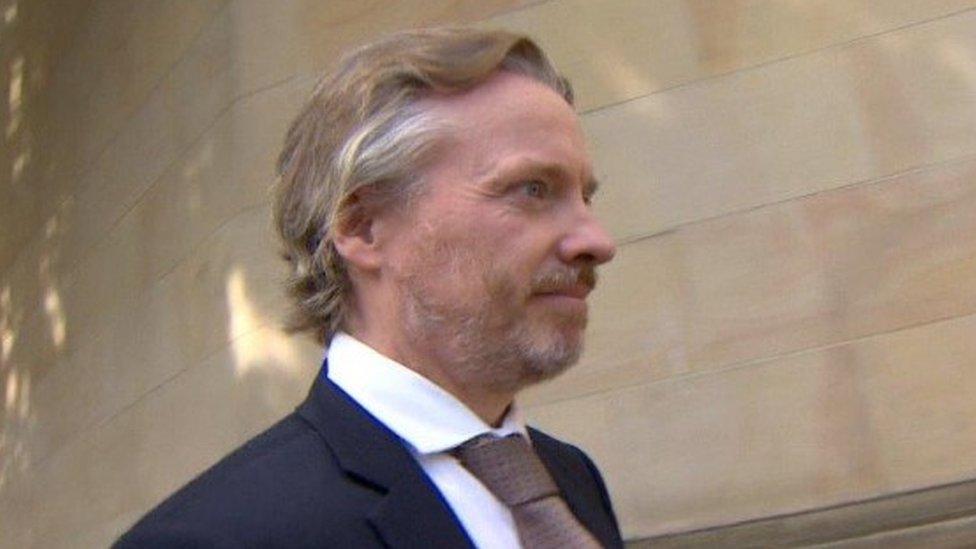Craig Whyte trial: Murray team 'desperate' for Rangers deal
- Published
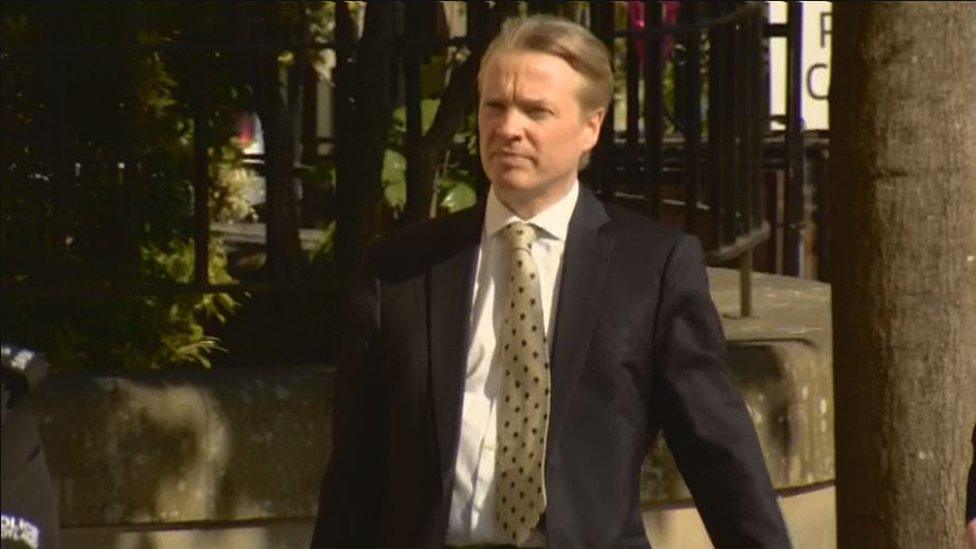
Craig Whyte denies fraudulently acquiring the Ibrox side
A lawyer who handled Craig Whyte's takeover of Rangers has said Sir David Murray's team were "desperate to get the deal over the line".
Gary Withey said it was the only deal he had known where the vendor was pushing more than the purchaser.
The 52-year-old made the comments during testimony at the trial of Craig Whyte, who is accused of acquiring the club by fraud.
He denies a charge of fraud and another under the Companies Act.
Before Craig Whyte took over Rangers in May 2011, the Ibrox club was 85% owned by Sir David Murray.
'Not pushing'
He had made his intention to sell the club known in 2007.
However, the court has already heard that it took several years before he identified what he considered to be a serious buyer.
At the time of the deal to sell the club to Craig Whyte in 2011, Gary Withey worked for the London-based tax specialist Collyer Bristow, which had been recruited by Mr Whyte to oversee the deal.
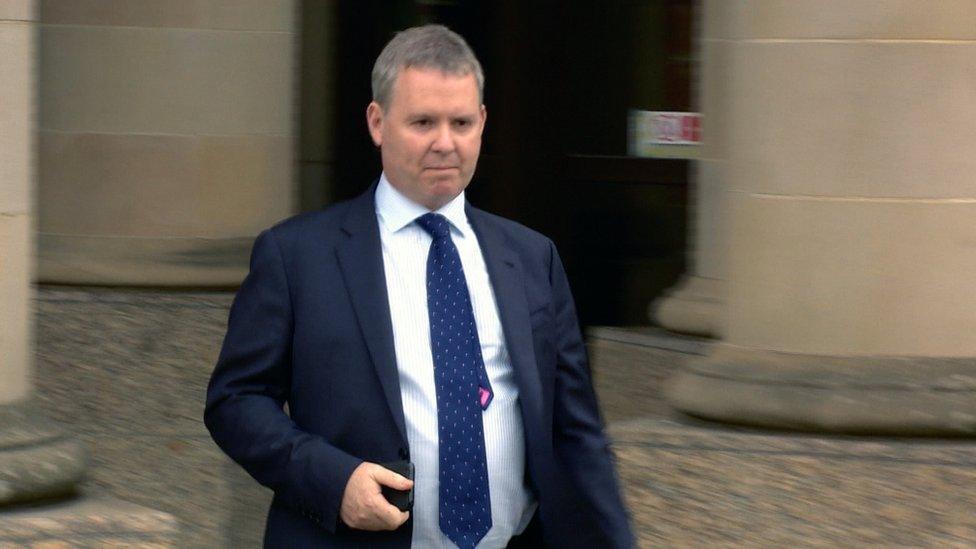
Legal advisor Gary Withey was giving evidence at the High Court in Glasgow
He told prosecuting QC Alex Prentice that in contrast to the seller's eagerness to sell the club, Mr Whyte was not pushing for the deal.
Mr Withey told the court that Sir David Murray's team "did not seem to care" with regards to the financing for the deal from Craig Whyte.
The lawyer went on: "This was the only deal I have been involved in where the vendor was pushing more than the purchaser.
'Not completing'
"Murray did not seem to care. I have never been pushed so hard in any deal.
"They were desperate to get this deal over the line."
Prosecutor Alex Prentice QC then asked: "You say Murray did not seem to care?"
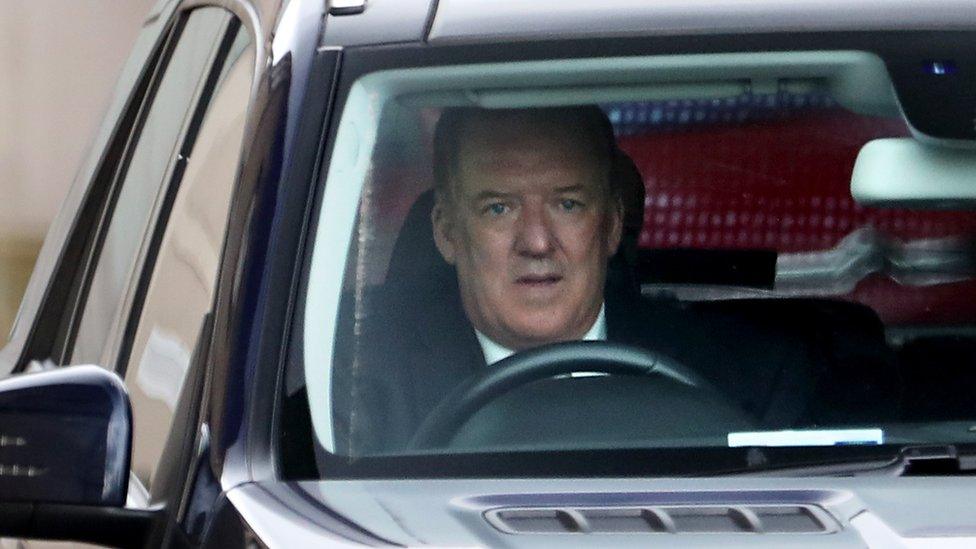
Sir David Murray sold Rangers to Craig Whyte for £1
Mr Withey replied: "They did not want the embarrassment of this not completing."
Mr Prentice later put it to Mr Withey that there seemed to be a "persistence" from the Murray team that funds were there.
The witness said he would agree.
Mr Prentice added: "Fair to say then that it appeared to have importance to Murray that you had the money."
Mr Withey replied: "Not that I had the money. The fact that the deal would complete...that was important."
Craig Whyte's former advisor also told the trial that a source of funding for the Rangers deal was from the ticketing firm Ticketus.
The prosecutor asked Mr Withey if "steps" were taken to "conceal" Ticketus as a "fund provider".
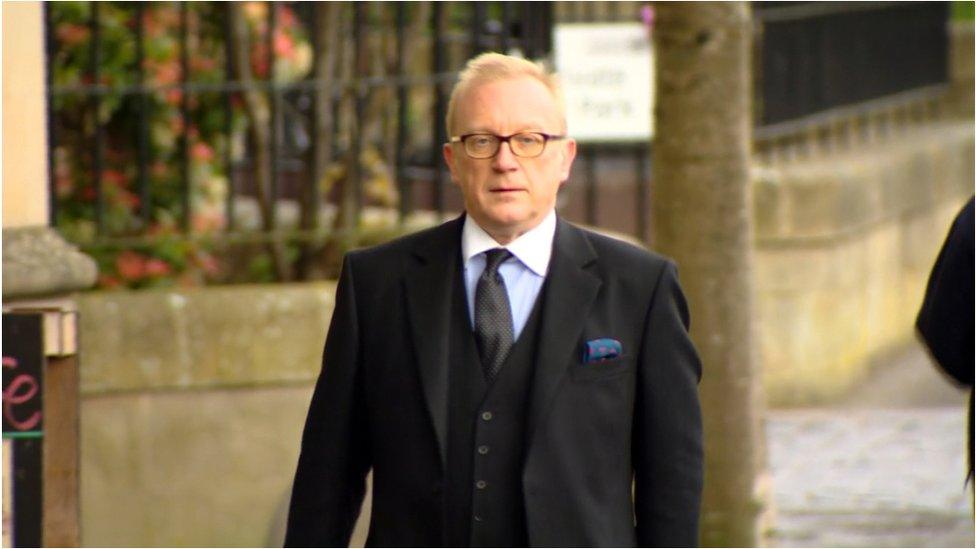
Prosecutor Alex Prentice QC was questioning Gary Withey
The witness replied: "I was told by Mr Whyte that Ticketus must not be shown."
But, he added that it was "not unusual" not to reveal "your source of funding".
Mr Withey said the Murray team had hoped to get the takeover done in time for an Old Firm match in May 2011.
He added: "Rangers were playing Celtic at the weekend and Murray wanted to be able to say that 'we have a new owner in place'."
Whyte's QC Donald Findlay later quizzed Mr Withey on his claim they had been keen to complete the sale.
Mr Findlay said: "Murray were desperate to conclude the deal?"
The witness replied: "Yes, which I found really odd."
The advocate then asked him: "Murray wanted to sell desperately?"
Mr Withey replied: "Yes, I have no doubt at all."
Mr Withey also told the trial that it had been "impossible to keep secret" Whyte's interest in Rangers' funding".
Prosecutors allege Mr Whyte pretended to Sir David Murray, and others, that funds were available to make all required payments to acquire a "controlling and majority stake" in the club.
The Crown alleges Mr Whyte had only £4m available from two sources at the time but took out a £24m loan from Ticketus against three years of future season ticket sales.
The court has heard the sale was eventually made to Mr Whyte for £1 but came with obligations to pay an £18m bank debt, a £2.8m "small tax case" bill, £1.7m for stadium repairs, £5m for players and £5m in working capital.
The second charge under the Companies Act centres on the £18m payment between Mr Whyte's Wavetower company and Rangers to clear a bank debt.
The trial before eight men and seven women continues.
- Published10 May 2017
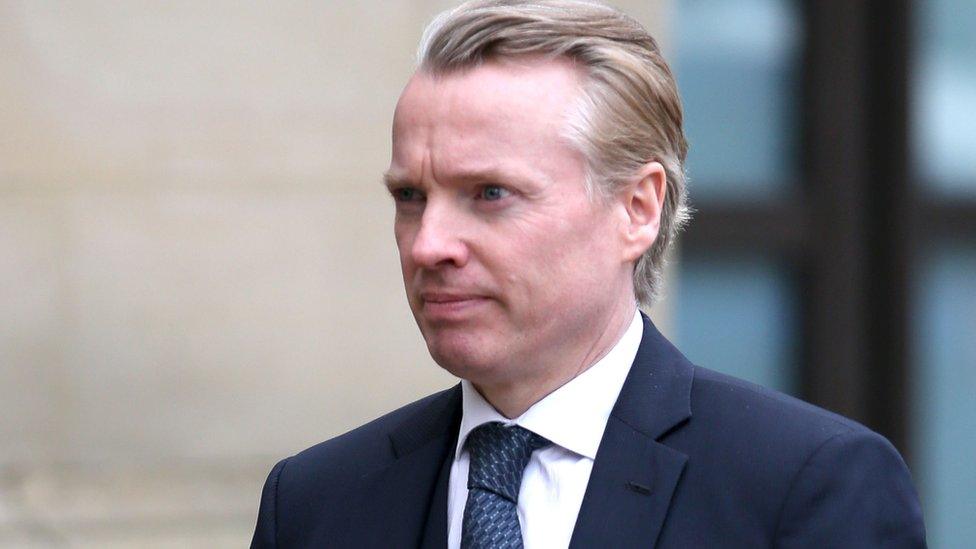
- Published9 May 2017
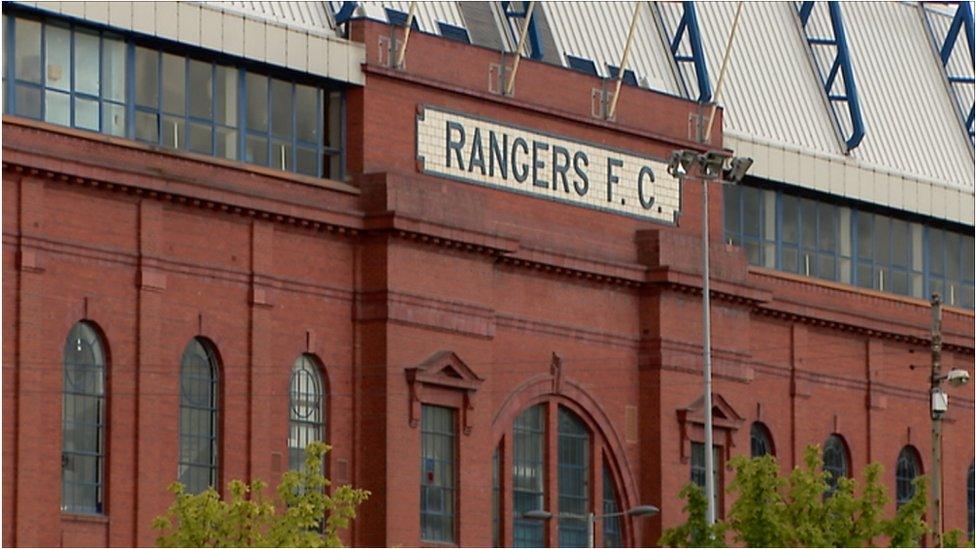
- Published3 May 2017

- Published25 April 2017
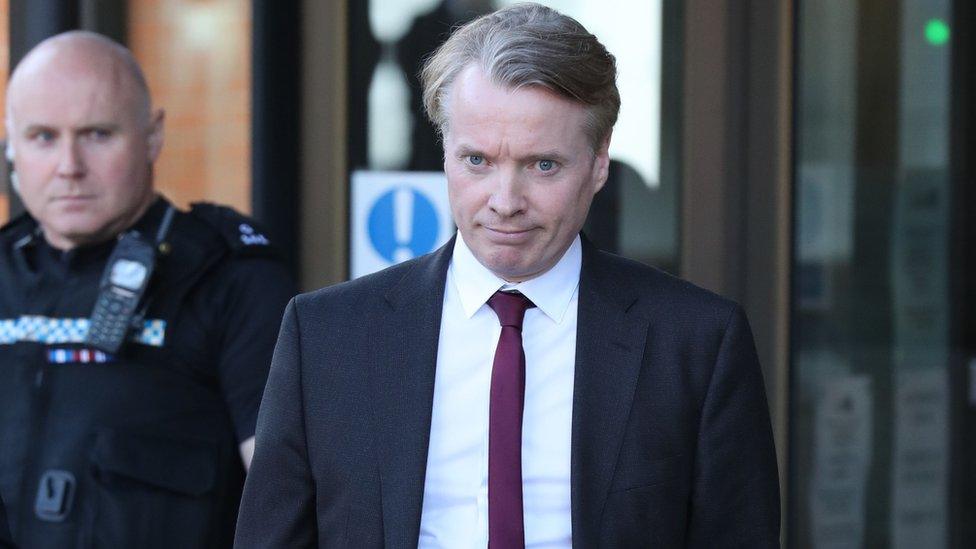
- Published24 April 2017

- Published21 April 2017

- Published20 April 2017
